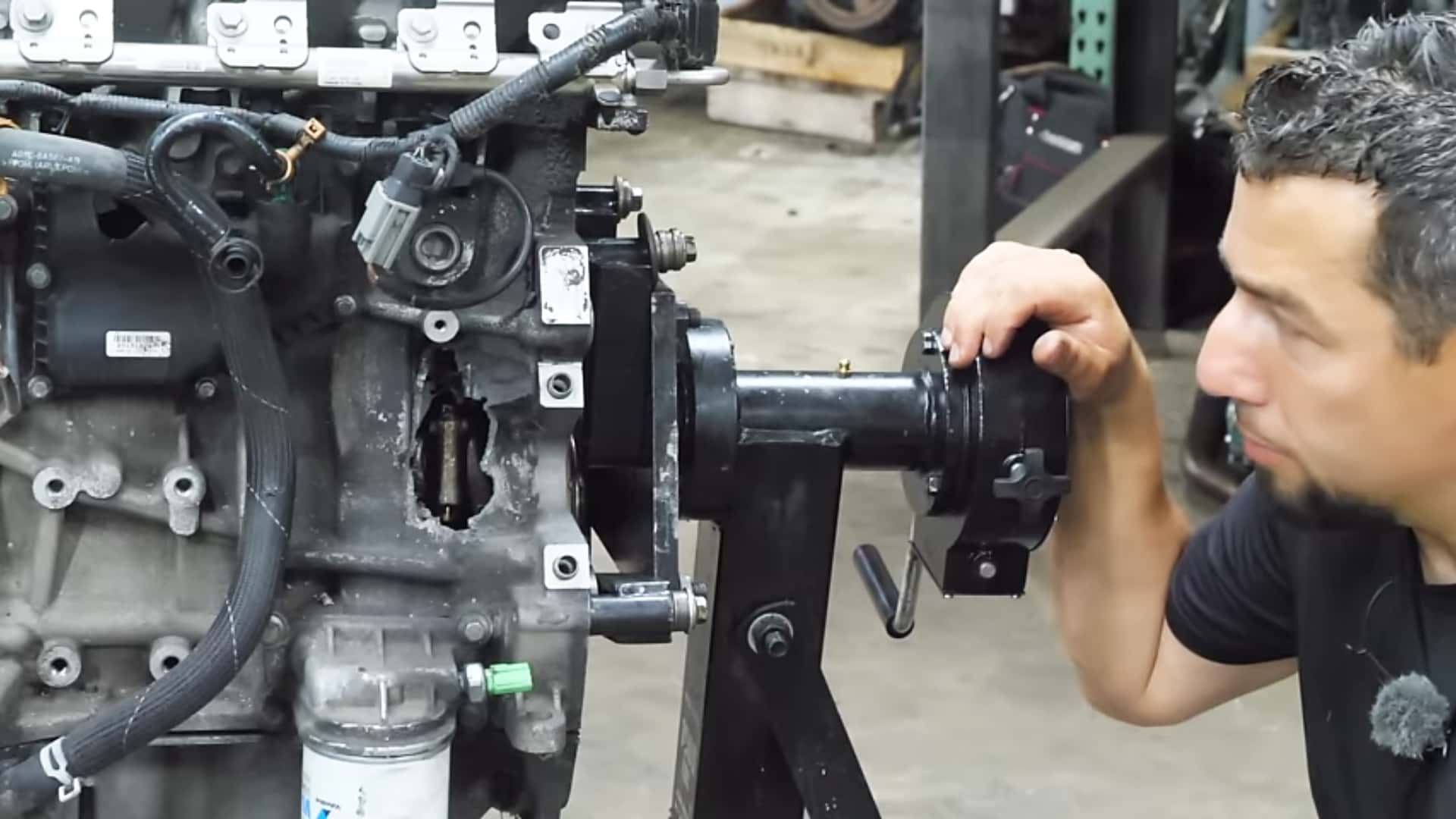This former Ford engine was in a spectacular state, considering the damage.


Ford has deployed its 2.0-liter EcoBoost turbocharged four-cylinder engine in a wide variety of vehicles. This particular mill once powered a 2014 Ford Escape , and for obvious reasons, its glory days are over. The block is trashed, there are chunks of piston and rod in the oil pan, but here’s the thing: the source of all this chaos is a mystery.
We do have some background on the engine. As explained in this latest I Do Cars video, it was pulled from the Escape with 164,000 miles on the odometer. The engine was reportedly driven by “someone’s daughter” who hadn’t checked the oil, and one day it simply wouldn’t start. The SUV was towed to a mechanic, where the engine was pronounced dead.
The video raises some questions, starting with the significant damage to the engine block that we can see right away. On one side, there are cracks where something tried to break through, but on the other side, there is a large hole. There are more holes towards the back of the engine, so something clearly exploded with a lot of force. With the head off, we can see that a piston is missing, which is later found (in pieces) in the oil pan. This is clearly what destroyed the engine, but what caused it?
Oil starvation is always a prime suspect in these cases. Too little oil or excessively high RPMs can reduce lubrication to the rod and main bearings, leading to heat, wear, and ultimately failure. This can cause the piston to strike the top of the combustion chamber, destroying an engine. The damage here is consistent with an oil starvation problem, except for one important detail. The bearings for the failed piston show no signs of wear or damage.
Unfortunately, the engine was outside for a while after it was taken out, so there is quite a bit of water in it. That could be masking other issues, such as a hydrolock situation. The prevailing theory is that something happened, but instead of the driver stopping, he kept driving, which ultimately caused all the damage. The fact that it didn’t start one day was simply a result of the root cause, which remains a mystery.
The moral of the story is pretty simple: always check your oil. And if you hear something annoying under the hood, just pull over, for the grace of all the car gods.
Source: I do cars / YouTube
read more
